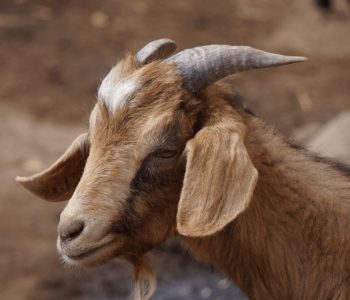Feeding strategies for goats and sheep
Small ruminants, such as goats and sheep, are valuable assets for livestock producers, providing milk, meat, wool, and fiber. To ensure their health and productivity, it’s essential to provide a balanced diet that meets their nutritional needs at different stages of life.
Basic Nutritional Requirements:
Small ruminants, like all livestock, require a balance of energy, protein, fiber, vitamins, and minerals in their diets. These components help them maintain body condition, grow effectively, and reproduce successfully. A well-balanced diet is also critical for their immune function, keeping them resilient against disease.
- Energy – The primary energy source for small ruminants is fiber-rich forages
- Protein –
- Fiber – Fiber plays a critical role in maintaining rumen health, stimulating rumination, and ensuring proper digestion. Low fiber levels can lead to ruminal stasis, which reduces feed intake and energy absorption.
Feeding Considerations for Different Stages of Life:
- Lambs and Kids: Young small ruminants require a high-protein diet for optimalgrowth. Milk (from the mother or supplemented) should form the basis of their early nutrition, but they can be transitioned to grain-based rations after a few weeks to ensure they have enough energy and protein as they grow.
- Adult Sheep and Goats: For mature animals, maintenance rations are vital for keeping body condition. During periods of lactation, females require additional nutrients to support milk production, often leading to a need for higher energy intake. For pregnant ewes or does, extra protein is needed for fetal development.
- Breeding Females: Both sheep and goats require a specialized diet in he pre-breeding and breeding seasons. Providing adequate minerals like calcium, phosphorus, and selenium is crucial for reproductive success, preventing milk fever and other metabolic disorders.
Minerals and Vitamins:
Special Considerations:
- Heat Stress: During hot weather, small ruminants can experience heat stress, which
- Parasitic Control: Parasite burdens can affect nutrient absorption and overall health, especially in grazing animals. Maintaining a healthy grazing system and parasitic control programs helps improve overall performance.
Takeaway: The nutritional needs of small ruminants are complex and vary with age, stage of reproduction, and environmental conditions. A well-rounded, fiber-rich diet supplemented with appropriate proteins, minerals, and vitamins is essential for ensuring their health, productivity, and longevity on the farm.
